afterLoad (456.28KB) (792μs)
afterInitialise (1.27MB) (66.18ms)
afterRoute (840.61KB) (29.56ms)
beforeRenderComponent com_tags (21.09KB) (352μs)
afterRenderComponent com_tags (1.89MB) (209ms)
afterDispatch (65.49KB) (8.3ms)
beforeRenderRawModule mod_articles_category (READ MORE...) (425.11KB) (23.16ms)
Before Access::preloadComponents (all components) (50.9KB) (608μs)
After Access::preloadComponents (all components) (103.05KB) (12.05ms)
Before Access::getAssetRules (id:8 name:com_content) (840B) (29μs)
After Access::getAssetRules (id:8 name:com_content) (7.05KB) (62μs)
afterRenderRawModule mod_articles_category (READ MORE...) (2.13KB) (284ms)
beforeRenderRawModule mod_custom (BOOST YOUR IMMUNE DEFENSE) (6.45KB) (41μs)
afterRenderRawModule mod_custom (BOOST YOUR IMMUNE DEFENSE) (3.8KB) (1.41ms)
beforeRenderRawModule mod_tags_popular (Search) (2.36KB) (24μs)
afterRenderRawModule mod_tags_popular (Search) (40.93KB) (241ms)
beforeRenderRawModule mod_custom (Get additionel and more detailed knowledge ) (816B) (49μs)
afterRenderRawModule mod_custom (Get additionel and more detailed knowledge ) (1.55KB) (83μs)
beforeRenderRawModule mod_custom (Overview of vitamins, minerals, and essential fatty acids) (768B) (13μs)
afterRenderRawModule mod_custom (Overview of vitamins, minerals, and essential fatty acids) (960B) (26μs)
beforeRenderRawModule mod_custom (Q10 goes by many names) (608B) (10μs)
afterRenderRawModule mod_custom (Q10 goes by many names) (928B) (19μs)
beforeRenderRawModule mod_custom (Check this before you buy a Q10 product) (752B) (10μs)
afterRenderRawModule mod_custom (Check this before you buy a Q10 product) (944B) (19μs)
beforeRenderRawModule mod_custom (Are you taking supplements) (736B) (9μs)
afterRenderRawModule mod_custom (Are you taking supplements) (1.03KB) (19μs)
beforeRenderRawModule mod_custom (Weight loss that works) (736B) (8μs)
afterRenderRawModule mod_custom (Weight loss that works) (1.03KB) (1.66ms)
beforeRenderRawModule mod_custom (Antiaging) (720B) (28μs)
afterRenderRawModule mod_custom (Antiaging) (912B) (44μs)
beforeRenderRawModule mod_menu (Are you getting enough vitamins and minerals?) (2.5KB) (16μs)
afterRenderRawModule mod_menu (Are you getting enough vitamins and minerals?) (22.39KB) (693μs)
beforeRenderRawModule mod_menu (The key to increased well-being) (736B) (21μs)
afterRenderRawModule mod_menu (The key to increased well-being) (17.83KB) (3.33ms)
beforeRenderRawModule mod_menu (Did you know.....) (720B) (33μs)
afterRenderRawModule mod_menu (Did you know.....) (25.52KB) (440μs)
beforeRenderRawModule mod_custom (Useful Links) (1.06KB) (17μs)
afterRenderRawModule mod_custom (Useful Links) (1.02KB) (38μs)
beforeRenderRawModule mod_custom (Chronic fatigue tied Alan to his bed but Q10 capsules saved him:) (244.28KB) (11.93ms)
afterRenderRawModule mod_custom (Chronic fatigue tied Alan to his bed but Q10 capsules saved him:) (1.06KB) (55μs)
beforeRenderModule mod_custom (Chronic fatigue tied Alan to his bed but Q10 capsules saved him:) (768B) (6μs)
afterRenderModule mod_custom (Chronic fatigue tied Alan to his bed but Q10 capsules saved him:) (1.3KB) (79μs)
beforeRenderRawModule mod_custom (Cholesterol-lowering without side effects:) (368B) (13μs)
afterRenderRawModule mod_custom (Cholesterol-lowering without side effects:) (1.06KB) (23μs)
beforeRenderModule mod_custom (Cholesterol-lowering without side effects:) (752B) (2μs)
afterRenderModule mod_custom (Cholesterol-lowering without side effects:) (1.28KB) (30μs)
beforeRenderModule mod_articles_category (READ MORE...) (20.82KB) (2.89ms)
afterRenderModule mod_articles_category (READ MORE...) (1.25KB) (88μs)
beforeRenderModule mod_custom (BOOST YOUR IMMUNE DEFENSE) (6.81KB) (16μs)
afterRenderModule mod_custom (BOOST YOUR IMMUNE DEFENSE) (1.28KB) (26μs)
beforeRenderModule mod_tags_popular (Search) (1.98KB) (13μs)
afterRenderModule mod_tags_popular (Search) (1.27KB) (23μs)
beforeRenderModule mod_custom (Get additionel and more detailed knowledge ) (1.17KB) (10μs)
afterRenderModule mod_custom (Get additionel and more detailed knowledge ) (1.3KB) (22μs)
beforeRenderModule mod_custom (Overview of vitamins, minerals, and essential fatty acids) (384B) (9μs)
afterRenderModule mod_custom (Overview of vitamins, minerals, and essential fatty acids) (1.31KB) (21μs)
beforeRenderModule mod_custom (Q10 goes by many names) (208B) (9μs)
afterRenderModule mod_custom (Q10 goes by many names) (1.27KB) (22μs)
beforeRenderModule mod_custom (Check this before you buy a Q10 product) (352B) (9μs)
afterRenderModule mod_custom (Check this before you buy a Q10 product) (1.28KB) (1.52ms)
beforeRenderModule mod_custom (Are you taking supplements) (352B) (31μs)
afterRenderModule mod_custom (Are you taking supplements) (1.28KB) (46μs)
beforeRenderModule mod_custom (Weight loss that works) (336B) (12μs)
afterRenderModule mod_custom (Weight loss that works) (1.27KB) (25μs)
beforeRenderModule mod_custom (Antiaging) (336B) (10μs)
afterRenderModule mod_custom (Antiaging) (3.77KB) (23μs)
beforeRenderModule mod_menu (Are you getting enough vitamins and minerals?) (2.13KB) (11μs)
afterRenderModule mod_menu (Are you getting enough vitamins and minerals?) (1.3KB) (22μs)
beforeRenderModule mod_menu (The key to increased well-being) (352B) (11μs)
afterRenderModule mod_menu (The key to increased well-being) (1.28KB) (20μs)
beforeRenderModule mod_menu (Did you know.....) (336B) (10μs)
afterRenderModule mod_menu (Did you know.....) (1.27KB) (21μs)
beforeRenderModule mod_custom (Useful Links) (1.44KB) (9μs)
afterRenderModule mod_custom (Useful Links) (1.27KB) (21μs)
beforeRenderRawModule mod_menu (Main Menu - English) (29.14KB) (1.78ms)
afterRenderRawModule mod_menu (Main Menu - English) (256.45KB) (5.37ms)
beforeRenderModule mod_menu (Main Menu - English) (720B) (8μs)
afterRenderModule mod_menu (Main Menu - English) (4.86KB) (95μs)
beforeRenderRawModule mod_languages (Sprogskift) (3.94KB) (26μs)
afterRenderRawModule mod_languages (Sprogskift) (22.5KB) (8.84ms)
beforeRenderModule mod_languages (Sprogskift) (720B) (8μs)
afterRenderModule mod_languages (Sprogskift) (5.31KB) (26μs)
beforeRenderRawModule mod_finder () (6.34KB) (15μs)
afterRenderRawModule mod_finder () (64.59KB) (11.6ms)
beforeRenderModule mod_finder () (704B) (8μs)
afterRenderModule mod_finder () (3.29KB) (41μs)
beforeRenderRawModule mod_custom () (6.62KB) (166μs)
afterRenderRawModule mod_custom () (22.67KB) (6.09ms)
beforeRenderModule mod_custom () (704B) (9μs)
afterRenderModule mod_custom () (1.23KB) (70μs)
beforeRenderRawModule mod_menu (Main Menu - English) (5.07KB) (157μs)
afterRenderRawModule mod_menu (Main Menu - English) (6.3KB) (4.4ms)
beforeRenderModule mod_menu (Main Menu - English) (720B) (6μs)
afterRenderModule mod_menu (Main Menu - English) (1.25KB) (64μs)
beforeRenderRawModule mod_languages (Sprogskift Mobil) (912B) (23μs)
afterRenderRawModule mod_languages (Sprogskift Mobil) (3.89KB) (3.99ms)
beforeRenderModule mod_languages (Sprogskift Mobil) (720B) (9μs)
afterRenderModule mod_languages (Sprogskift Mobil) (1.27KB) (42μs)
beforeRenderRawModule mod_finder () (2.3KB) (15μs)
afterRenderRawModule mod_finder () (6.29KB) (5.02ms)
beforeRenderModule mod_finder () (704B) (7μs)
afterRenderModule mod_finder () (1.23KB) (63μs)
beforeRenderRawModule mod_custom () (8.66KB) (213μs)
afterRenderRawModule mod_custom () (904B) (207μs)
beforeRenderModule mod_custom () (704B) (3μs)
afterRenderModule mod_custom () (2.43KB) (29μs)
beforeRenderRawModule mod_custom () (688B) (87μs)
afterRenderRawModule mod_custom () (896B) (99μs)
beforeRenderModule mod_custom () (704B) (3μs)
afterRenderModule mod_custom () (2.71KB) (23μs)
afterRender (342.48KB) (26.6ms)
| 1 x afterRenderRawModule mod_articles_category (READ MORE...) (2.13KB) (29.02%) | 283.92ms |
| 1 x afterRenderRawModule mod_tags_popular (Search) (40.93KB) (24.61%) | 240.76ms |
| 1 x afterRenderComponent com_tags (1.89MB) (21.33%) | 208.69ms |
| 1 x afterInitialise (1.27MB) (6.76%) | 66.18ms |
| 1 x afterRoute (840.61KB) (3.02%) | 29.56ms |
| 1 x afterRender (342.48KB) (2.72%) | 26.60ms |
| 1 x beforeRenderRawModule mod_articles_category (READ MORE...) (425.11KB) (2.37%) | 23.16ms |
| 1 x After Access::preloadComponents (all components) (103.05KB) (1.23%) | 12.05ms |
| 1 x beforeRenderRawModule mod_custom (Chronic fatigue tied Alan to his bed but Q10 capsules saved him:) (244.28KB) (1.22%) | 11.93ms |
| 1 x afterRenderRawModule mod_finder () (64.59KB) (1.19%) | 11.60ms |
| 1 x afterRenderRawModule mod_languages (Sprogskift) (22.5KB) (0.9%) | 8.84ms |
| 1 x afterDispatch (65.49KB) (0.85%) | 8.30ms |
| 1 x afterRenderRawModule mod_custom () (22.67KB) (0.62%) | 6.09ms |
| 1 x afterRenderRawModule mod_menu (Main Menu - English) (256.45KB) (0.55%) | 5.37ms |
| 1 x afterRenderRawModule mod_finder () (6.29KB) (0.51%) | 5.02ms |
| 1 x afterRenderRawModule mod_menu (Main Menu - English) (6.3KB) (0.45%) | 4.40ms |
| 1 x afterRenderRawModule mod_languages (Sprogskift Mobil) (3.89KB) (0.41%) | 3.99ms |
| 1 x afterRenderRawModule mod_menu (The key to increased well-being) (17.83KB) (0.34%) | 3.33ms |
| 1 x beforeRenderModule mod_articles_category (READ MORE...) (20.82KB) (0.3%) | 2.89ms |
| 1 x beforeRenderRawModule mod_menu (Main Menu - English) (29.14KB) (0.18%) | 1.78ms |
| 1 x afterRenderRawModule mod_custom (Weight loss that works) (1.03KB) (0.17%) | 1.66ms |
| 1 x afterRenderModule mod_custom (Check this before you buy a Q10 product) (1.28KB) (0.16%) | 1.52ms |
| 1 x afterRenderRawModule mod_custom (BOOST YOUR IMMUNE DEFENSE) (3.8KB) (0.14%) | 1.41ms |
| 1 x afterLoad (456.28KB) (0.08%) | 792μs |
| 1 x afterRenderRawModule mod_menu (Are you getting enough vitamins and minerals?) (22.39KB) (0.07%) | 693μs |
| 1 x Before Access::preloadComponents (all components) (50.9KB) (0.06%) | 608μs |
| 1 x afterRenderRawModule mod_menu (Did you know.....) (25.52KB) (0.04%) | 440μs |
| 1 x beforeRenderComponent com_tags (21.09KB) (0.04%) | 352μs |
| 1 x beforeRenderRawModule mod_custom () (8.66KB) (0.02%) | 213μs |
| 1 x afterRenderRawModule mod_custom () (904B) (0.02%) | 207μs |
| 1 x beforeRenderRawModule mod_custom () (6.62KB) (0.02%) | 166μs |
| 1 x beforeRenderRawModule mod_menu (Main Menu - English) (5.07KB) (0.02%) | 157μs |
| 1 x afterRenderRawModule mod_custom () (896B) (0.01%) | 99μs |
| 1 x afterRenderModule mod_menu (Main Menu - English) (4.86KB) (0.01%) | 95μs |
| 1 x afterRenderModule mod_articles_category (READ MORE...) (1.25KB) (0.01%) | 88μs |
| 1 x beforeRenderRawModule mod_custom () (688B) (0.01%) | 87μs |
| 1 x afterRenderRawModule mod_custom (Get additionel and more detailed knowledge ) (1.55KB) (0.01%) | 83μs |
| 1 x afterRenderModule mod_custom (Chronic fatigue tied Alan to his bed but Q10 capsules saved him:) (1.3KB) (0.01%) | 79μs |
| 1 x afterRenderModule mod_custom () (1.23KB) (0.01%) | 70μs |
| 1 x afterRenderModule mod_menu (Main Menu - English) (1.25KB) (0.01%) | 64μs |
| 1 x afterRenderModule mod_finder () (1.23KB) (0.01%) | 63μs |
| 1 x After Access::getAssetRules (id:8 name:com_content) (7.05KB) (0.01%) | 62μs |
| 1 x afterRenderRawModule mod_custom (Chronic fatigue tied Alan to his bed but Q10 capsules saved him:) (1.06KB) (0.01%) | 55μs |
| 1 x beforeRenderRawModule mod_custom (Get additionel and more detailed knowledge ) (816B) (0.01%) | 49μs |
| 1 x afterRenderModule mod_custom (Are you taking supplements) (1.28KB) (0%) | 46μs |
| 1 x afterRenderRawModule mod_custom (Antiaging) (912B) (0%) | 44μs |
| 1 x afterRenderModule mod_languages (Sprogskift Mobil) (1.27KB) (0%) | 42μs |
| 1 x beforeRenderRawModule mod_custom (BOOST YOUR IMMUNE DEFENSE) (6.45KB) (0%) | 41μs |
| 1 x afterRenderModule mod_finder () (3.29KB) (0%) | 41μs |
| 1 x afterRenderRawModule mod_custom (Useful Links) (1.02KB) (0%) | 38μs |
| 1 x beforeRenderRawModule mod_menu (Did you know.....) (720B) (0%) | 33μs |
| 1 x beforeRenderModule mod_custom (Are you taking supplements) (352B) (0%) | 31μs |
| 1 x afterRenderModule mod_custom (Cholesterol-lowering without side effects:) (1.28KB) (0%) | 30μs |
| 1 x Before Access::getAssetRules (id:8 name:com_content) (840B) (0%) | 29μs |
| 1 x afterRenderModule mod_custom () (2.43KB) (0%) | 29μs |
| 1 x beforeRenderRawModule mod_custom (Antiaging) (720B) (0%) | 28μs |
| 1 x afterRenderRawModule mod_custom (Overview of vitamins, minerals, and essential fatty acids) (960B) (0%) | 26μs |
| 1 x afterRenderModule mod_custom (BOOST YOUR IMMUNE DEFENSE) (1.28KB) (0%) | 26μs |
| 1 x beforeRenderRawModule mod_languages (Sprogskift) (3.94KB) (0%) | 26μs |
| 1 x afterRenderModule mod_languages (Sprogskift) (5.31KB) (0%) | 26μs |
| 1 x afterRenderModule mod_custom (Weight loss that works) (1.27KB) (0%) | 25μs |
| 1 x beforeRenderRawModule mod_tags_popular (Search) (2.36KB) (0%) | 24μs |
| 1 x afterRenderModule mod_custom (Antiaging) (3.77KB) (0%) | 23μs |
| 1 x beforeRenderRawModule mod_languages (Sprogskift Mobil) (912B) (0%) | 23μs |
| 1 x afterRenderModule mod_custom () (2.71KB) (0%) | 23μs |
| 1 x afterRenderRawModule mod_custom (Cholesterol-lowering without side effects:) (1.06KB) (0%) | 23μs |
| 1 x afterRenderModule mod_tags_popular (Search) (1.27KB) (0%) | 23μs |
| 1 x afterRenderModule mod_custom (Get additionel and more detailed knowledge ) (1.3KB) (0%) | 22μs |
| 1 x afterRenderModule mod_custom (Q10 goes by many names) (1.27KB) (0%) | 22μs |
| 1 x afterRenderModule mod_menu (Are you getting enough vitamins and minerals?) (1.3KB) (0%) | 22μs |
| 1 x beforeRenderRawModule mod_menu (The key to increased well-being) (736B) (0%) | 21μs |
| 1 x afterRenderModule mod_custom (Overview of vitamins, minerals, and essential fatty acids) (1.31KB) (0%) | 21μs |
| 1 x afterRenderModule mod_menu (Did you know.....) (1.27KB) (0%) | 21μs |
| 1 x afterRenderModule mod_custom (Useful Links) (1.27KB) (0%) | 21μs |
| 1 x afterRenderModule mod_menu (The key to increased well-being) (1.28KB) (0%) | 20μs |
| 1 x afterRenderRawModule mod_custom (Q10 goes by many names) (928B) (0%) | 19μs |
| 1 x afterRenderRawModule mod_custom (Check this before you buy a Q10 product) (944B) (0%) | 19μs |
| 1 x afterRenderRawModule mod_custom (Are you taking supplements) (1.03KB) (0%) | 19μs |
| 1 x beforeRenderRawModule mod_custom (Useful Links) (1.06KB) (0%) | 17μs |
| 1 x beforeRenderRawModule mod_menu (Are you getting enough vitamins and minerals?) (2.5KB) (0%) | 16μs |
| 1 x beforeRenderModule mod_custom (BOOST YOUR IMMUNE DEFENSE) (6.81KB) (0%) | 16μs |
| 1 x beforeRenderRawModule mod_finder () (6.34KB) (0%) | 15μs |
| 1 x beforeRenderRawModule mod_finder () (2.3KB) (0%) | 15μs |
| 2 x beforeRenderModule mod_finder () (704B) (0%) | 15μs |
| 3 x beforeRenderModule mod_custom () (704B) (0%) | 15μs |
| 2 x beforeRenderModule mod_menu (Main Menu - English) (720B) (0%) | 14μs |
| 1 x beforeRenderRawModule mod_custom (Cholesterol-lowering without side effects:) (368B) (0%) | 13μs |
| 1 x beforeRenderModule mod_tags_popular (Search) (1.98KB) (0%) | 13μs |
| 1 x beforeRenderRawModule mod_custom (Overview of vitamins, minerals, and essential fatty acids) (768B) (0%) | 13μs |
| 1 x beforeRenderModule mod_custom (Weight loss that works) (336B) (0%) | 12μs |
| 1 x beforeRenderModule mod_menu (Are you getting enough vitamins and minerals?) (2.13KB) (0%) | 11μs |
| 1 x beforeRenderModule mod_menu (The key to increased well-being) (352B) (0%) | 11μs |
| 1 x beforeRenderRawModule mod_custom (Check this before you buy a Q10 product) (752B) (0%) | 10μs |
| 1 x beforeRenderModule mod_custom (Get additionel and more detailed knowledge ) (1.17KB) (0%) | 10μs |
| 1 x beforeRenderModule mod_custom (Antiaging) (336B) (0%) | 10μs |
| 1 x beforeRenderModule mod_menu (Did you know.....) (336B) (0%) | 10μs |
| 1 x beforeRenderRawModule mod_custom (Q10 goes by many names) (608B) (0%) | 10μs |
| 1 x beforeRenderRawModule mod_custom (Are you taking supplements) (736B) (0%) | 9μs |
| 1 x beforeRenderModule mod_custom (Overview of vitamins, minerals, and essential fatty acids) (384B) (0%) | 9μs |
| 1 x beforeRenderModule mod_custom (Q10 goes by many names) (208B) (0%) | 9μs |
| 1 x beforeRenderModule mod_custom (Check this before you buy a Q10 product) (352B) (0%) | 9μs |
| 1 x beforeRenderModule mod_custom (Useful Links) (1.44KB) (0%) | 9μs |
| 1 x beforeRenderModule mod_languages (Sprogskift Mobil) (720B) (0%) | 9μs |
| 1 x beforeRenderRawModule mod_custom (Weight loss that works) (736B) (0%) | 8μs |
| 1 x beforeRenderModule mod_languages (Sprogskift) (720B) (0%) | 8μs |
| 1 x beforeRenderModule mod_custom (Chronic fatigue tied Alan to his bed but Q10 capsules saved him:) (768B) (0%) | 6μs |
| 1 x beforeRenderModule mod_custom (Cholesterol-lowering without side effects:) (752B) (0%) | 2μs |
 According to Bruce Ames, an American biochemist, ageing processes are largely due to lack of nutrients. One important contributing factor is the fact that our uptake and utilization of vitamins and minerals decrease with age. In addition, a lot of different types of medicine block our ability to utilize different nutrients. As a result of this, many of our enzyme processes slow down, making our cells increasingly vulnerable and that increases our risk of disease. Nonetheless, there is a lot we can do to optimize our intake and utilization of nutrients, particularly with respect to vitamin B12, vitamin D, calcium, iron, selenium, and zinc. It is also worth taking a look at Q10 for energy turnover and melatonin for healthy sleep. Our endogenous synthesis of both compounds decreases with age.
According to Bruce Ames, an American biochemist, ageing processes are largely due to lack of nutrients. One important contributing factor is the fact that our uptake and utilization of vitamins and minerals decrease with age. In addition, a lot of different types of medicine block our ability to utilize different nutrients. As a result of this, many of our enzyme processes slow down, making our cells increasingly vulnerable and that increases our risk of disease. Nonetheless, there is a lot we can do to optimize our intake and utilization of nutrients, particularly with respect to vitamin B12, vitamin D, calcium, iron, selenium, and zinc. It is also worth taking a look at Q10 for energy turnover and melatonin for healthy sleep. Our endogenous synthesis of both compounds decreases with age.







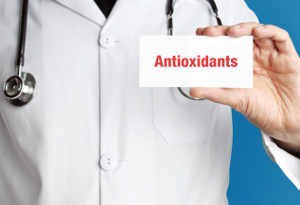 Antioxidants such as vitamins C and E are known to be inversely related to type 1 diabetes, which is an autoimmune disease. In a new Swedish study that is published in Nutrients, scientists have found that vitamin E also protects against type 1,5 diabetes, which is similar to type 1 and type 2 diabetes because it involves both autoimmune reactions and insulin resistance. The scientists list different foods that are rich in vitamin E and also describe how vitamin E protects the pancreas against autoimmune attacks and oxidative stress.
Antioxidants such as vitamins C and E are known to be inversely related to type 1 diabetes, which is an autoimmune disease. In a new Swedish study that is published in Nutrients, scientists have found that vitamin E also protects against type 1,5 diabetes, which is similar to type 1 and type 2 diabetes because it involves both autoimmune reactions and insulin resistance. The scientists list different foods that are rich in vitamin E and also describe how vitamin E protects the pancreas against autoimmune attacks and oxidative stress.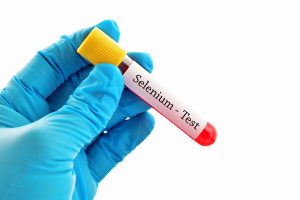 It is estimated that one billion people worldwide lack
It is estimated that one billion people worldwide lack 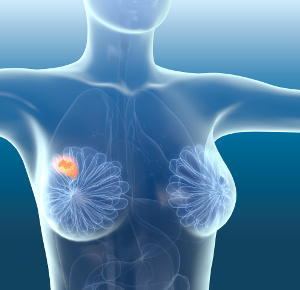 Having higher blood levels of
Having higher blood levels of 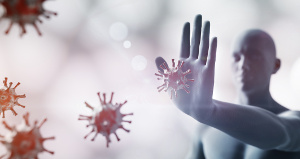 COVID-19 represents a serious global threat against public health and the economy because we still lack a vaccine and effective therapies. When COVID-19 becomes life-threatening it is primarily because the immune defense overreacts with a cytokine storm and hyperinflammation that destroys healthy tissue in the lungs, the circulatory system, and other places. Older people and heart failure patients already suffer from chronic low-grade, uncontrolled inflammation, to which nutrient deficiencies contribute and make the patients increasingly vulnerable. This also applies to people with metabolic syndrome and diabetes, many of which are overweight. For that reason, scientists affiliated with universities and research centers in Norway, Sweden, and Russia have searched the scientific literature to find studies that focus on whether supplementation with vitamin D, selenium, and zinc can help prevent a COVID-19 infection from escalating and becoming life-threatening.
COVID-19 represents a serious global threat against public health and the economy because we still lack a vaccine and effective therapies. When COVID-19 becomes life-threatening it is primarily because the immune defense overreacts with a cytokine storm and hyperinflammation that destroys healthy tissue in the lungs, the circulatory system, and other places. Older people and heart failure patients already suffer from chronic low-grade, uncontrolled inflammation, to which nutrient deficiencies contribute and make the patients increasingly vulnerable. This also applies to people with metabolic syndrome and diabetes, many of which are overweight. For that reason, scientists affiliated with universities and research centers in Norway, Sweden, and Russia have searched the scientific literature to find studies that focus on whether supplementation with vitamin D, selenium, and zinc can help prevent a COVID-19 infection from escalating and becoming life-threatening.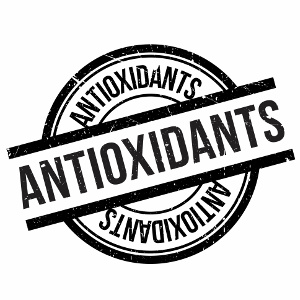 Everyone is affected by electromagnetic radiation from cell phones, device screens, the electricity supply and other electric systems. The brain’s neurons are particularly vulnerable, especially because electromagnetic radiation can increase the neuronal uptake of calcium ions, which makes the neurons overactive and may even cause them to perish. A study published in News Medical Life Sciences shows that too much calcium in the brain increases the risk of Alzheimer’s disease and digital dementia in young individuals. The increased electromagnetic radiation also generates loads of free radicals in the body that can cause oxidative stress and cellular damage because it outperforms the body’s different antioxidants. This was described in an article published in The Journal of Microscopy & Ultrastructure that also mentions how electromagnetic radiation can cause stress, headaches, fatigue, anxiety, and other symptoms.
Everyone is affected by electromagnetic radiation from cell phones, device screens, the electricity supply and other electric systems. The brain’s neurons are particularly vulnerable, especially because electromagnetic radiation can increase the neuronal uptake of calcium ions, which makes the neurons overactive and may even cause them to perish. A study published in News Medical Life Sciences shows that too much calcium in the brain increases the risk of Alzheimer’s disease and digital dementia in young individuals. The increased electromagnetic radiation also generates loads of free radicals in the body that can cause oxidative stress and cellular damage because it outperforms the body’s different antioxidants. This was described in an article published in The Journal of Microscopy & Ultrastructure that also mentions how electromagnetic radiation can cause stress, headaches, fatigue, anxiety, and other symptoms.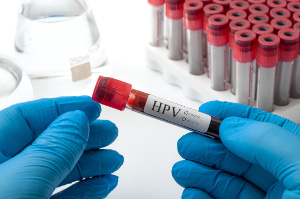 The majority of sexually active people contract HPV (human papilloma virus), of which there are several types. Normally, the infection goes away by itself but in some cases it becomes chronic. This increases the risk of serious cell changes in the cervix which, in worst case, can result in cervical cancer. An American study has found that having adequate levels of five different antioxidants – albumin plus vitamins A, B2, E, and folic acid – may lower papilloma virus infections that are linked to cervical cancer.
The majority of sexually active people contract HPV (human papilloma virus), of which there are several types. Normally, the infection goes away by itself but in some cases it becomes chronic. This increases the risk of serious cell changes in the cervix which, in worst case, can result in cervical cancer. An American study has found that having adequate levels of five different antioxidants – albumin plus vitamins A, B2, E, and folic acid – may lower papilloma virus infections that are linked to cervical cancer.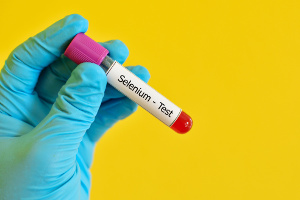
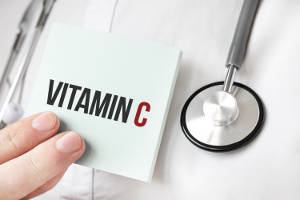 Critically ill patients often suffer from inflammation and oxidative stress, which is an imbalance between harmful free radicals and protective antioxidants. In worst case, this may result in tissue damage and organ failure. It turns out
Critically ill patients often suffer from inflammation and oxidative stress, which is an imbalance between harmful free radicals and protective antioxidants. In worst case, this may result in tissue damage and organ failure. It turns out  Kidney stones is a painful and quite common problem. The diet plays a major role and according to a large American population study published in Nutrients,
Kidney stones is a painful and quite common problem. The diet plays a major role and according to a large American population study published in Nutrients, 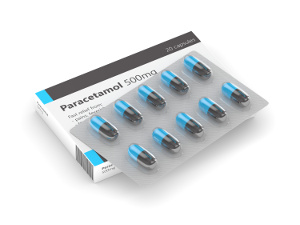 Millions of people take painkillers such as Panadol or Calpol that contain paracetamol, and an estimated one billion people or so lack
Millions of people take painkillers such as Panadol or Calpol that contain paracetamol, and an estimated one billion people or so lack  It is commonly known that pregnant diabetics have an increased risk of developing an eye disease called diabetic retinopathy. The diet plays a major role and it appears that a
It is commonly known that pregnant diabetics have an increased risk of developing an eye disease called diabetic retinopathy. The diet plays a major role and it appears that a 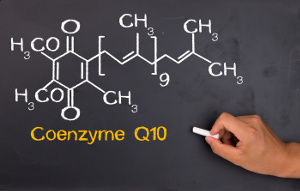 Hereditary hemochromatosis is a group of diseases that involve iron accumulation in the body. This leads to oxidative stress and tissue destruction which may affect the liver and other organs. According to a new Argentinian study, patients with hereditary hemochromatosis lack
Hereditary hemochromatosis is a group of diseases that involve iron accumulation in the body. This leads to oxidative stress and tissue destruction which may affect the liver and other organs. According to a new Argentinian study, patients with hereditary hemochromatosis lack 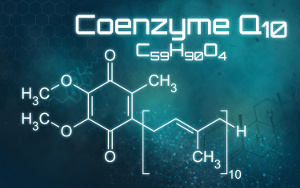 According to WHO, sepsis is the third-most common cause of death, following cardiovascular disease and death. Sepsis is a result of the immune defense overreacting to an infection in the bloodstream. According to a new Slovakian study published in Bratislava Medical Journal, if you start supplementing with
According to WHO, sepsis is the third-most common cause of death, following cardiovascular disease and death. Sepsis is a result of the immune defense overreacting to an infection in the bloodstream. According to a new Slovakian study published in Bratislava Medical Journal, if you start supplementing with 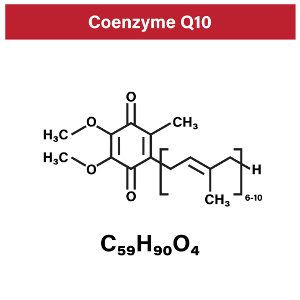 The body uses inflammation as part of its normal immune response to infections and tissue damage. If inflammation becomes chronic, however, it can be extremely dangerous. What happens is that it bombards the body with free radicals. This leads to oxidative stress and increases the risk of cell damage, overweight, and chronic diseases like type 2 diabetes, cardiovascular disease, autoimmune diseases, and different cancer forms. Diet and lifestyle play a major role, and according to a meta-analysis published in Frontiers in Pharmacology,
The body uses inflammation as part of its normal immune response to infections and tissue damage. If inflammation becomes chronic, however, it can be extremely dangerous. What happens is that it bombards the body with free radicals. This leads to oxidative stress and increases the risk of cell damage, overweight, and chronic diseases like type 2 diabetes, cardiovascular disease, autoimmune diseases, and different cancer forms. Diet and lifestyle play a major role, and according to a meta-analysis published in Frontiers in Pharmacology,  Cataracts is one of the leading causes of vision impairment and blindness. The risk is increased by old age and diabetes. According to a new study that is published in Frontiers in Nutrition, a relatively high
Cataracts is one of the leading causes of vision impairment and blindness. The risk is increased by old age and diabetes. According to a new study that is published in Frontiers in Nutrition, a relatively high 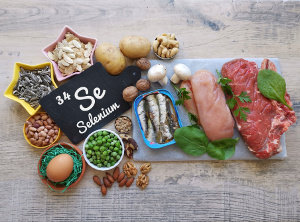
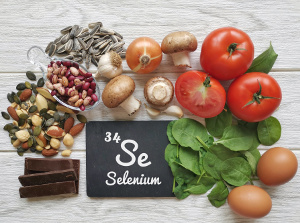
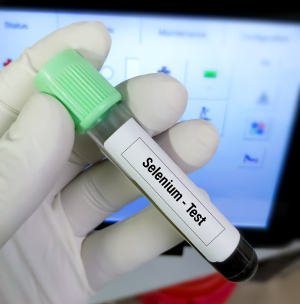 Over the past decades, numerous studies have linked low
Over the past decades, numerous studies have linked low  Regular sport is good for you, whereas arduous training and high-performance sport can result in physical injuries, infections, chronic inflammation, and serious diseases due to oxidative stress. This phenomenon occurs as a result of the increased energy turnover, which produces an excess of free radicals that cause damage to cells and tissues. Oxidative stress is also associated with impaired performance, poor restitution, and faster ageing. Our only natural defense against free radicals is the presence of antioxidants, and it is especially things like
Regular sport is good for you, whereas arduous training and high-performance sport can result in physical injuries, infections, chronic inflammation, and serious diseases due to oxidative stress. This phenomenon occurs as a result of the increased energy turnover, which produces an excess of free radicals that cause damage to cells and tissues. Oxidative stress is also associated with impaired performance, poor restitution, and faster ageing. Our only natural defense against free radicals is the presence of antioxidants, and it is especially things like 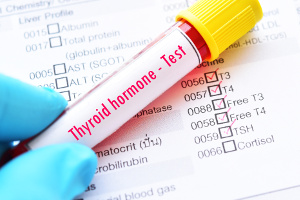
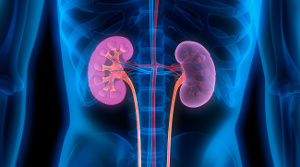 The kidneys cleanse our blood. Well-functioning kidneys are vital for the circulatory system and good health in general. Normal functioning of cells, including kidney cells, hinges on a host of different selenium-containing proteins and coenzyme Q10. Studies show that older people in many parts of the world, Europe included, have deficiencies of both substances. Therefore, a team of Swedish scientists conducted a study where they looked at selenium status and kidney function in a group of seniors. They gave selenium yeast and coenzyme Q10 or placebo to the participants for a period of four years. The results showed that the supplemented group as compared with the placebo group had improved kidney function according to several parameters. The positive effect on cellular energy metabolism, inflammation, and oxidative stress was attributed to the two supplements. The study is published in the science journal Nutrients.
The kidneys cleanse our blood. Well-functioning kidneys are vital for the circulatory system and good health in general. Normal functioning of cells, including kidney cells, hinges on a host of different selenium-containing proteins and coenzyme Q10. Studies show that older people in many parts of the world, Europe included, have deficiencies of both substances. Therefore, a team of Swedish scientists conducted a study where they looked at selenium status and kidney function in a group of seniors. They gave selenium yeast and coenzyme Q10 or placebo to the participants for a period of four years. The results showed that the supplemented group as compared with the placebo group had improved kidney function according to several parameters. The positive effect on cellular energy metabolism, inflammation, and oxidative stress was attributed to the two supplements. The study is published in the science journal Nutrients.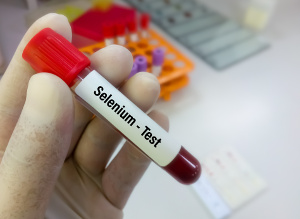 Both physical traumas and critical illnesses are associated with inflammation and oxidative stress where free radicals can cause potentially life-threatening damage to cells and tissues. Traumas are estimated to be the cause of one in ten deaths. New research suggests that early intervention with
Both physical traumas and critical illnesses are associated with inflammation and oxidative stress where free radicals can cause potentially life-threatening damage to cells and tissues. Traumas are estimated to be the cause of one in ten deaths. New research suggests that early intervention with 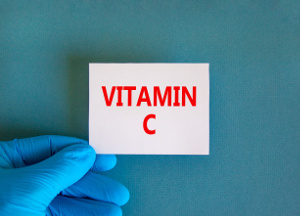
 Air pollution is a serious health threat that affects the entire world. Previous studies show that it increases the risk of cardiovascular disease, among other things. We need new strategies for protection, and a recent Chinese study conveniently reveals that supplementation with
Air pollution is a serious health threat that affects the entire world. Previous studies show that it increases the risk of cardiovascular disease, among other things. We need new strategies for protection, and a recent Chinese study conveniently reveals that supplementation with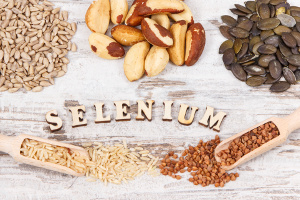 The trace element
The trace element  "After about one week of taking the Q10 supplement I could feel a huge difference," says 23-year old Alan Piccini, who has been suffering from extreme fatigue and muscle aches ever since he was a child.
"After about one week of taking the Q10 supplement I could feel a huge difference," says 23-year old Alan Piccini, who has been suffering from extreme fatigue and muscle aches ever since he was a child. “Taking capsules with co-enzyme Q10 has freed me of the severe side effects of my cholesterol lowering medicine,” Mrs Franken explains.
“Taking capsules with co-enzyme Q10 has freed me of the severe side effects of my cholesterol lowering medicine,” Mrs Franken explains.